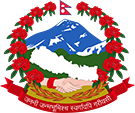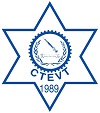
Nepal’s skills for work training must meet the needs of the green economy, be inclusive for all Nepalis to grow the country’s talent pool and involve employers to meet labour market demand. These were the priorities set out at a major conference, ‘Celebrating Impact’, recognising the innovation and best practice delivered by ten pioneering skills projects, held on Tuesday 19 July.
The event showcased skills development partnership models in the tourism, construction, and agriculture sectors. Launched in March 2020, they aimed to encourage closer engagement between public and private sector actors and develop new ways of working for the technical, vocational education and training (TVET) sector in Nepal.

The projects, known as Practical Partnership Pilot projects, have provided training for 3,734 learners (44% female, 41% aged 15-24 years old), with an estimated 70% of these trainees already in employment or having established their own business. The pilots have worked with hospitality employers to meet the needs of the tourism sector; enhanced young people’s skills in commercial farming; and have produced skilled labourers to meet needs in the construction sector.
Common to all pilots, and the reason for their dramatic success, has been:
- Prioritising the voice and needs of the private sector to develop job-ready trainees
- Increasing accessibility for groups traditionally underserved by TVET, such as women and marginalised caste and ethnic groups to boost incomes and grow the talent pool for employers
- Improving capacity for sustainable TVET provision through greener, climate-resilient, low-emission practices that will provide the skills for the emerging green economy.

The European Union’s Deputy Head of Cooperation, Ms. Eloisa Astudillo Fernandez, said:
“The impact of these pilots will be seen in new and better ways TVET providers work with employers and a transformation in the green skills and practices need for the economy of today and tomorrow. Only in this way will Nepal transition to a resilient economy that protects its natural resources, withstands shocks whilst creating inclusive jobs and wealth in key growth areas.”

Dakchyata’s Team Leader, John Mountford, said:
“It is well established that effective TVET is defined by close links to employers and an understanding of demanded skills. Through our pioneering pilots we developed and tested models to further bridge the gap between the supply and demand by bringing employers into the conversation. We have created models that other skills providers can replicate, such as opportunities for on-the-job experience for trainees. In this way, we are showing how to future proof TVET, so it is effective in creating the right skills for Nepal’s growth and development.”

First half of the event highlighted major learnings and impacts across four themes: collaboration, green implementation, inclusion and TVET models through selected grantee presentations while in the second half all practical partnership projects shared their experience at a “marketplace”.




To know more about our policy and learning documentation related to the ten pioneering skills projects, please click on the following links:
Information Brief : Inclusive TVET System
Information Brief : Effective Collaboration
Information Brief : TVET Models for workers
Information Brief : Green Growth
Practical Partnership Pilots: Overview, Learning and Impacts
To view the news coverage of the event, click here: European Union-funded skill projects showcased






